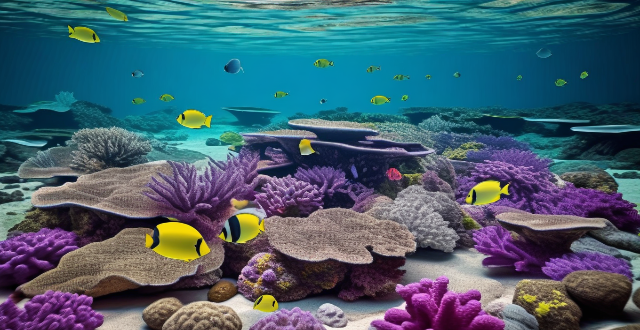The ethical implications of climate conflicts, which ariseThe ethical implications of climate conflicts, which arise climate change issues like resource scar which arise from disputes related to climate change issues like resource scarcity and displacement, involve complex moral dilemmas. These conflicts require careful consideration of rights, responsibilities, justice, sustainability, and stewardship. Key ethical principles include balancing individual rights with environmental responsibilities, ensuring justice and fairness in solutions, and promoting sustainability for future generations. Ethical dilemmas such as intergenerational equity, compensation and redress for victims, and balancing mitigation and adaptation strategies must also be addressed. Open dialogue and collaborative problem-solving are essential for finding solutions that promote a more equitable and sustainable future.

What are the Ethical Implications of Climate Conflicts?
Climate conflicts, defined as disputes arising from climate change-related issues such as resource scarcity, displacement, and environmental degradation, pose significant ethical challenges. These conflicts often involve complex moral dilemmas that require careful consideration of rights, responsibilities, and justice. In this discussion, we will explore the ethical implications of climate conflicts in detail.
I. Introduction
Climate conflicts have become increasingly prevalent in recent years, exacerbated by the effects of global warming and climate change. These conflicts can lead to social, economic, and political instability, with far-reaching consequences for individuals, communities, and nations. The ethical implications of climate conflicts are multifaceted and require a nuanced understanding of the underlying issues.
II. Ethical Principles in Climate Conflicts
A. Rights and Responsibilities
One of the primary ethical principles in climate conflicts is the concept of rights and responsibilities. All individuals have basic human rights, including the right to life, health, and security. However, these rights must be balanced against responsibilities to protect the environment and prevent further harm to others. For example, companies may have a responsibility to reduce their carbon emissions to mitigate the effects of climate change, even if it means incurring additional costs.
B. Justice and Fairness
Another key ethical principle in climate conflicts is justice and fairness. This involves ensuring that all parties involved in a conflict are treated equitably and that any solutions are fair to all stakeholders. For instance, when allocating resources or determining compensation for climate-related damages, it is essential to consider the needs and interests of vulnerable populations who may be disproportionately affected by climate change.
C. Sustainability and Stewardship
Sustainability and stewardship are also crucial ethical principles in climate conflicts. This involves recognizing our obligation to preserve natural resources for future generations and taking steps to minimize our impact on the environment. For example, governments may need to implement policies that promote renewable energy sources and reduce reliance on fossil fuels to mitigate the effects of climate change.
III. Ethical Dilemmas in Climate Conflicts
A. Intergenerational Equity
One of the most significant ethical dilemmas in climate conflicts is intergenerational equity. This involves balancing the needs and interests of current generations against those of future generations who will be affected by our actions today. For example, should we prioritize economic growth now at the expense of long-term environmental sustainability? How can we ensure that future generations have access to the same resources and opportunities as we do today?
B. Compensation and Redress
Another ethical dilemma in climate conflicts is determining appropriate compensation and redress for victims of climate-related harms. This involves identifying who should bear financial or other forms of responsibility for losses caused by climate change, such as damage to property or livelihoods. Should governments or corporations be held accountable for their contributions to climate change, and if so, how should they compensate affected individuals or communities?
C. Mitigation vs Adaptation
Finally, another ethical dilemma in climate conflicts is deciding between mitigation (reducing greenhouse gas emissions) and adaptation (coping with the effects of climate change). While both strategies are important, they require different approaches and resources. For example, investing in renewable energy infrastructure may help reduce carbon emissions but may not address immediate needs for disaster relief or food security in areas affected by climate change. How can we balance these competing priorities effectively?
IV. Conclusion
In conclusion, climate conflicts raise complex ethical issues that require careful consideration of rights, responsibilities, justice, sustainability, and stewardship. By engaging in open dialogue and collaborative problem-solving, we can work towards finding solutions that balance these competing principles and promote a more equitable and sustainable future for all.